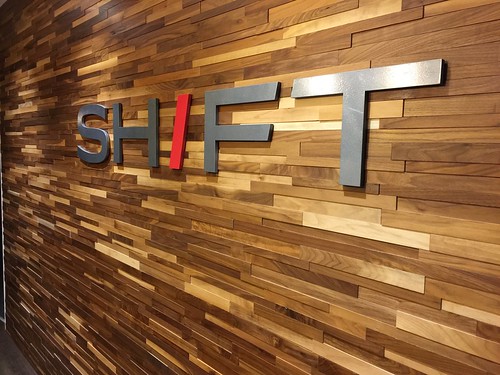Mark W. Schaefer wrote an excellent piece about why more and more marketers are going in-house, and why companies sometimes can be better served by an in-house professional rather than an agency. If you haven’t read it yet over on HBR, do so.
One key reason why a marketer might be better served at an agency rather than in-house at a brand is diversity. This is the key reason I joined SHIFT Communications almost three years ago.
When I was starting the process of searching for my next thing, I had coffee with the ever-inspiring Mitch Joel at Dreamforce 2012. Mitch, entirely with love, told me that I was an idiot for staying in-house because no one brand needed the odd assortment of things I could do.
I was an email marketer and a podcaster.
I was a social media practitioner who also understood marketing analytics.
I was a longtime SEO professional who could also design in Photoshop and Illustrator.
I could create marketing strategy but also write code.
Unless I was working at a top brand with big marketing dollars, I’d never be able to use my skills to their fullest potential, and even then, working at a top brand would have meant managing people to do those activities and not being able to do them myself. I still enjoy getting my hands dirty and trying new things.
Mitch was quite clear with me that in-house was the wrong choice. I’d continue to be bored, constrained by the endless limitations of working at a single company. At an agency, the fast-paced life and opportunity to work with many different kinds of businesses would stretch my capabilities and challenge me to grow my skills. I’d work with companies that had radically different business and marketing models, and be able to use all of my skills to their fullest potential.
For example, recently at SHIFT, I and my team launched a bake-off among a native ad platform, a DSP’s network, and an AdWords campaign to see how well each platform does at achieving one particular client’s goal. In-house, that sort of experiment would almost never have been approved at any of my recent employers. (I’ll tell you who won on the SHIFT blog once the test is concluded)
I get to use almost all of the skills above on a regular, nearly daily basis. No one client wants or needs them all, but in aggregate, the companies I serve do make use of them, which keeps me sharp and in practice. That’s not an experience I can get in-house anywhere.
To Mark’s last point about attracting talent, talent absolutely is a challenge. Agency life isn’t for everyone. It’s extremely fast-paced, and the demands on your time can be extreme. Top that with the necessity of marketers everywhere who need to be both left and right brained (yes, I know that’s not actually a real construct) and there absolutely are challenges finding and retaining the best and the brightest.
That said, having peeked inside more than a few companies over the past 3 years, there are plenty of companies that maintain the same furious pace and pressure on their in-house teams as well.
Ultimately, I’d make the case that agencies are as uneven in quality as any other employee. Some will be great. Some will be terrible. Most will be good enough, most of the time, and like hunting for good employees, hunting for the very best is a quest that never ends.
You might also enjoy:
- You Ask, I Answer: Reliability of LLMs vs Other Software?
- Almost Timely News, February 11, 2024: How To Evaluate a Generative AI System
- Mind Readings: You Need Passwords for Life in the Age of Generative AI Fraud
- You Ask, I Answer: AI Music Collaborations and Copyright?
- You Ask, I Answer: Retrieval Augmented Generation vs Fine-Tuning?
Want to read more like this from Christopher Penn? Get updates here:
 Take my Generative AI for Marketers course! |



Leave a Reply